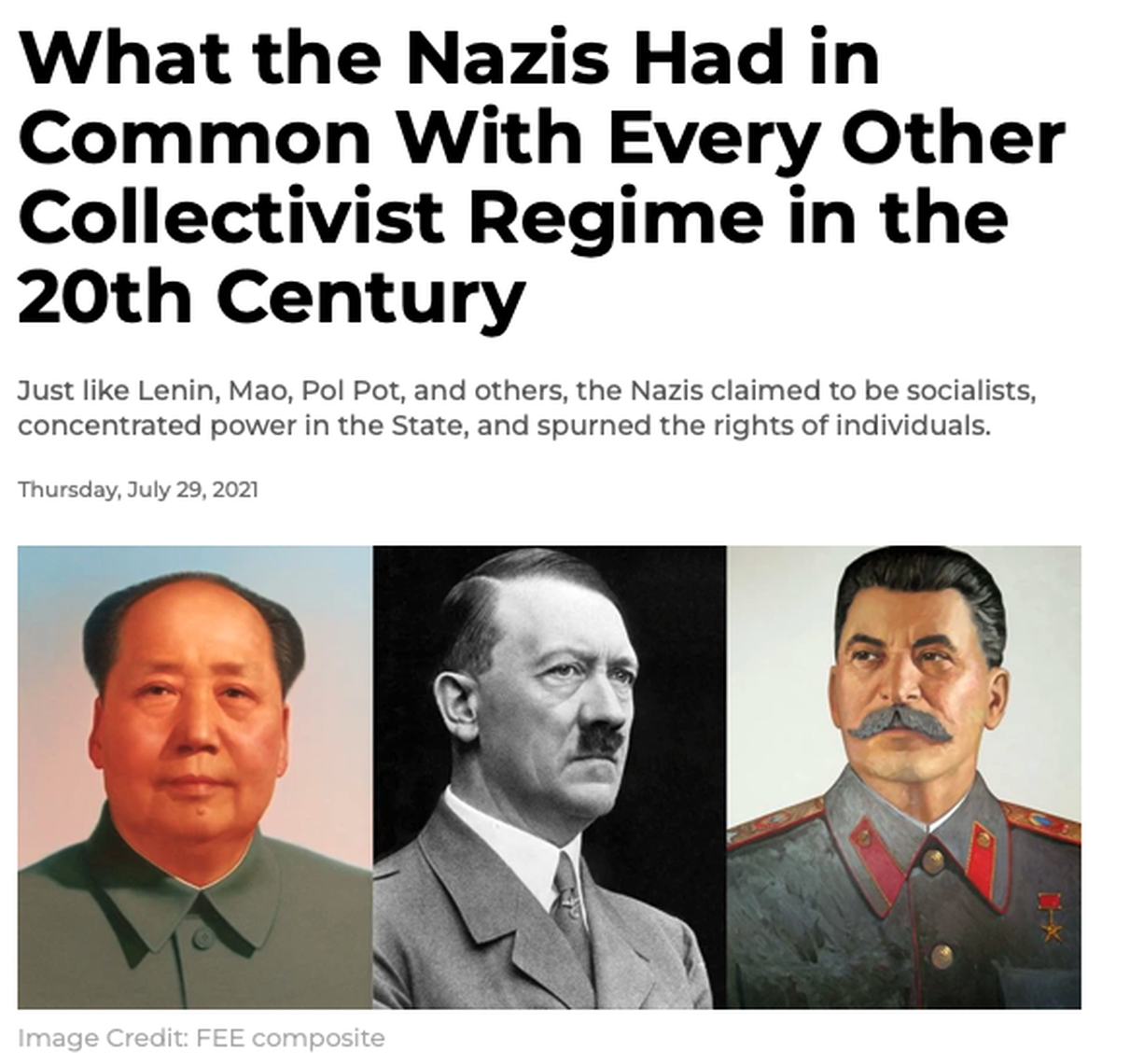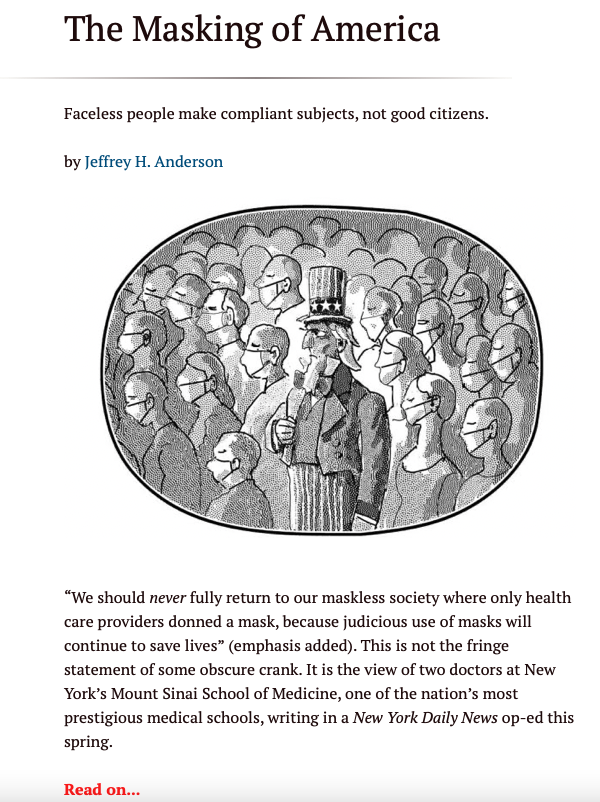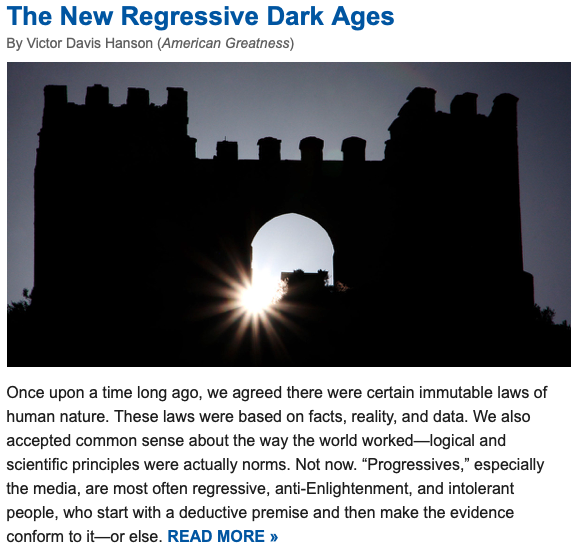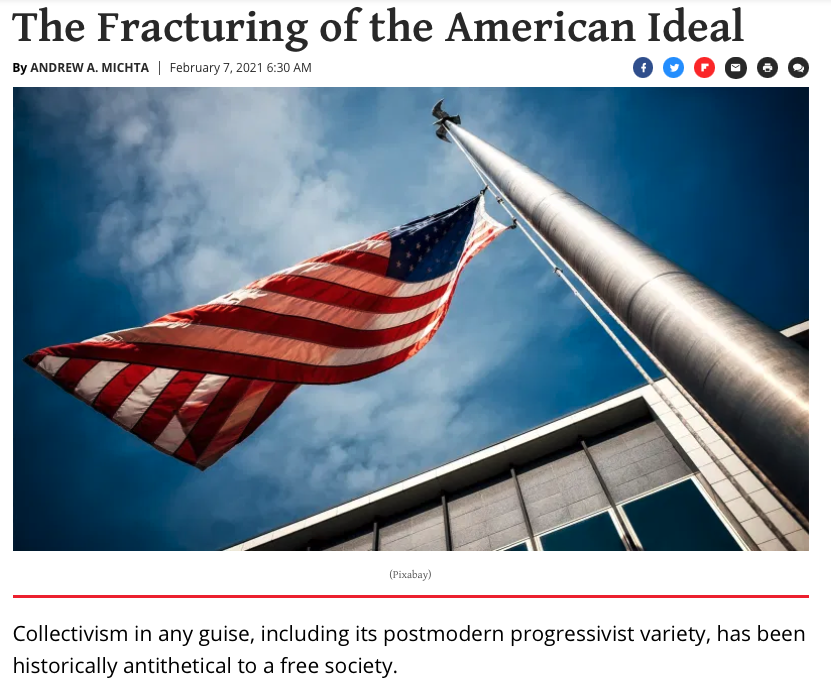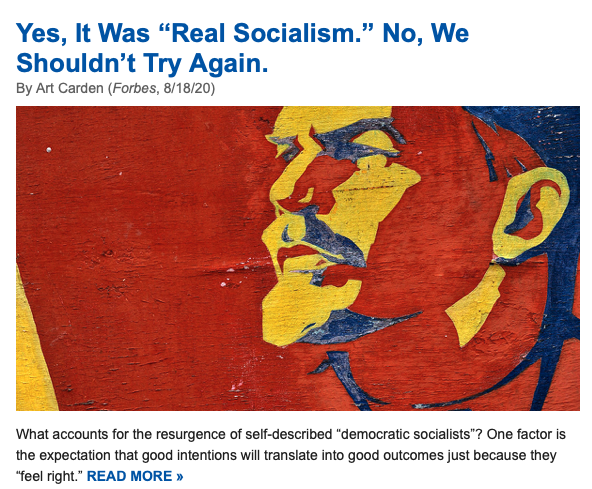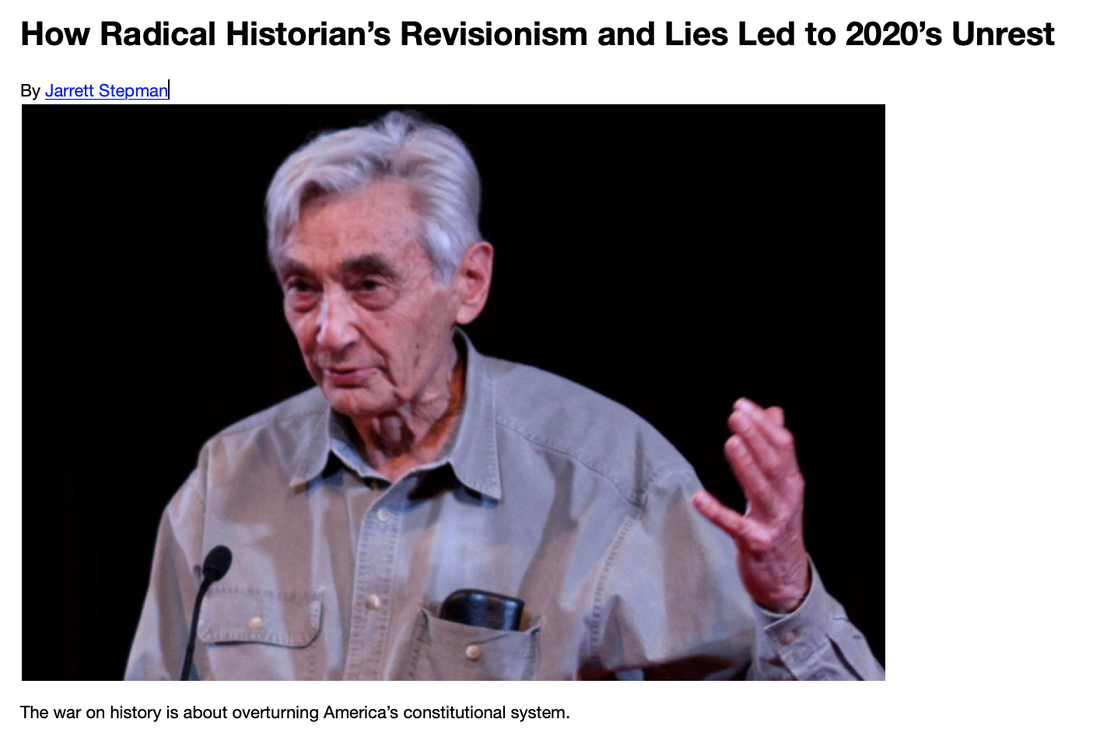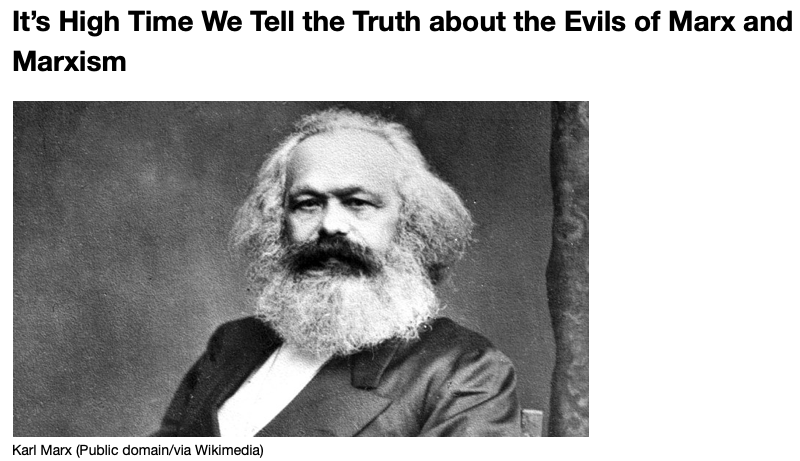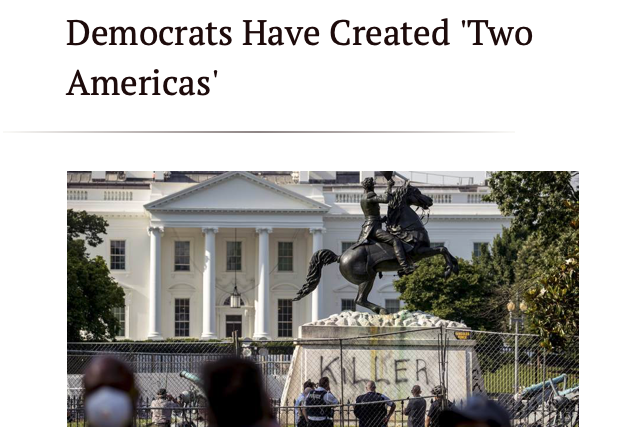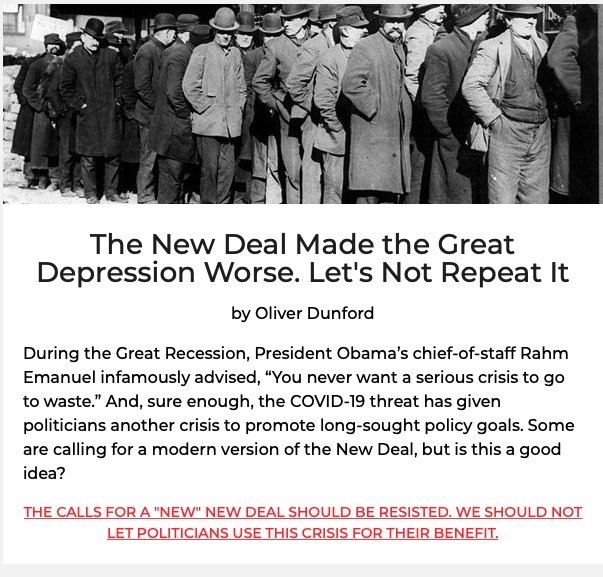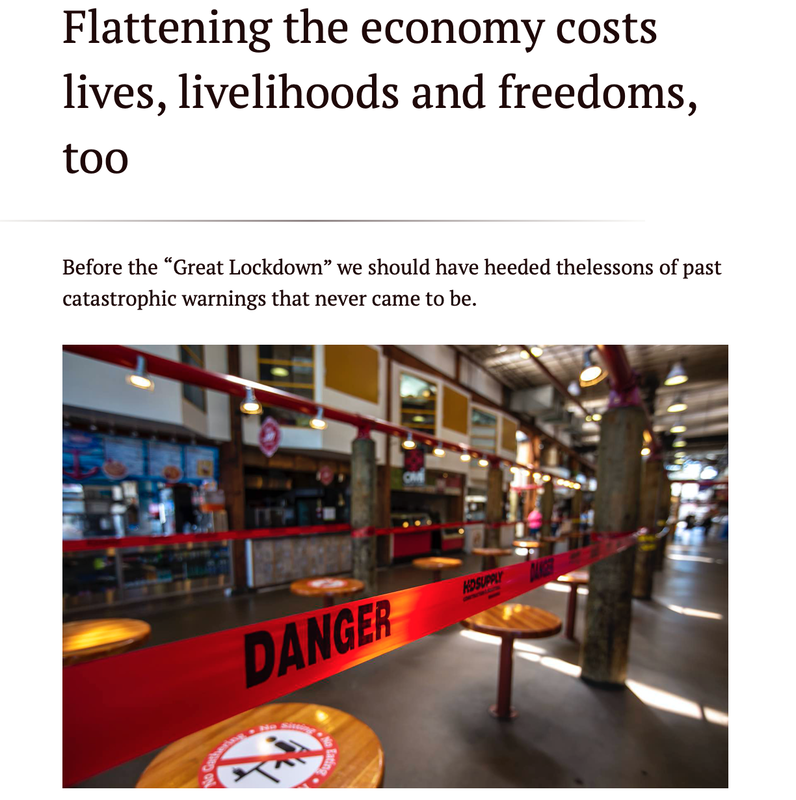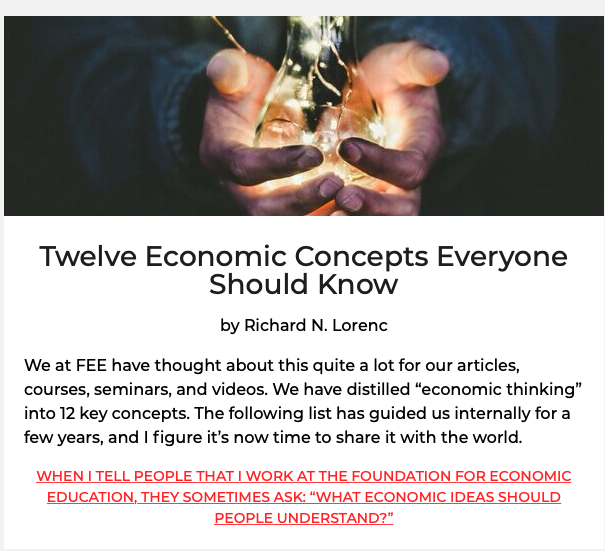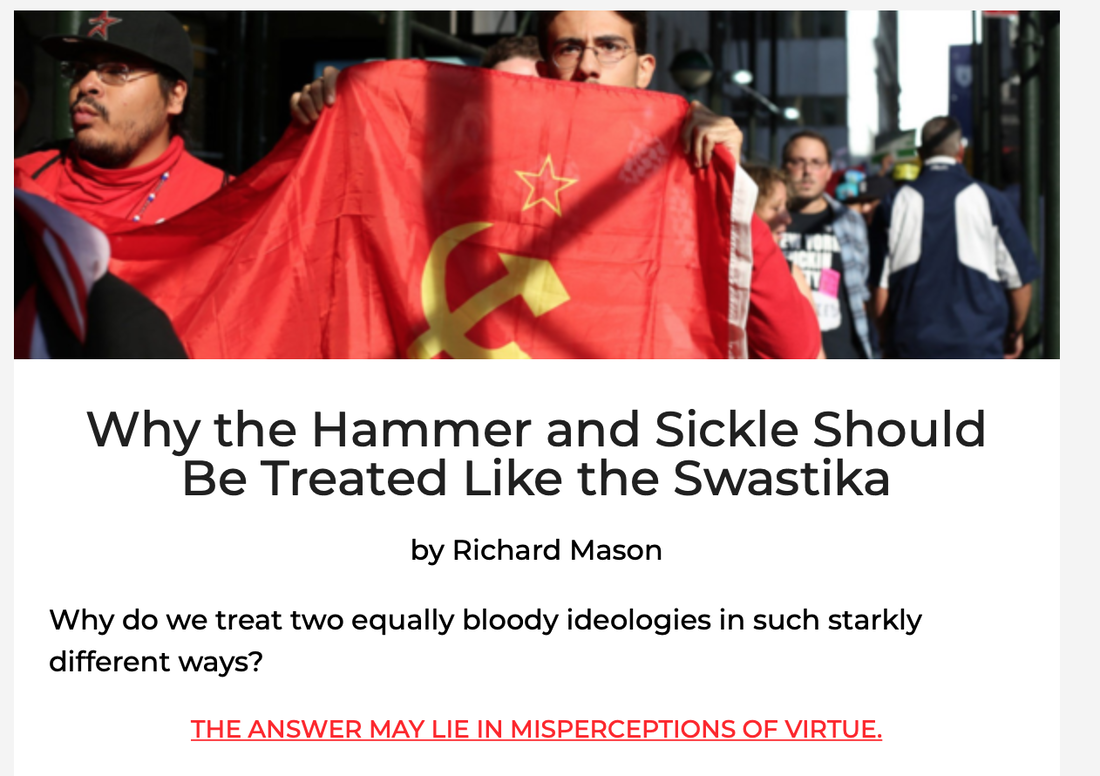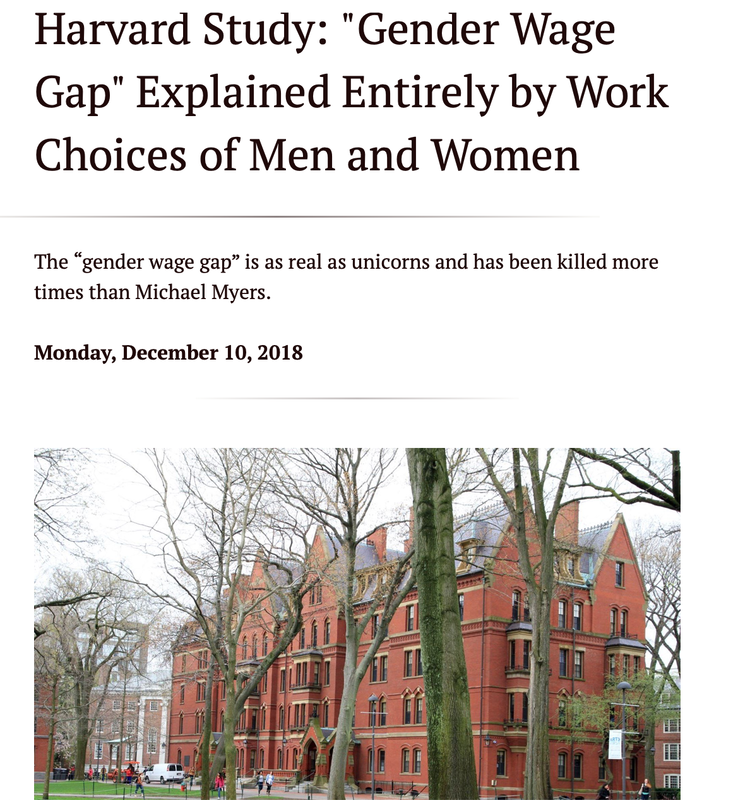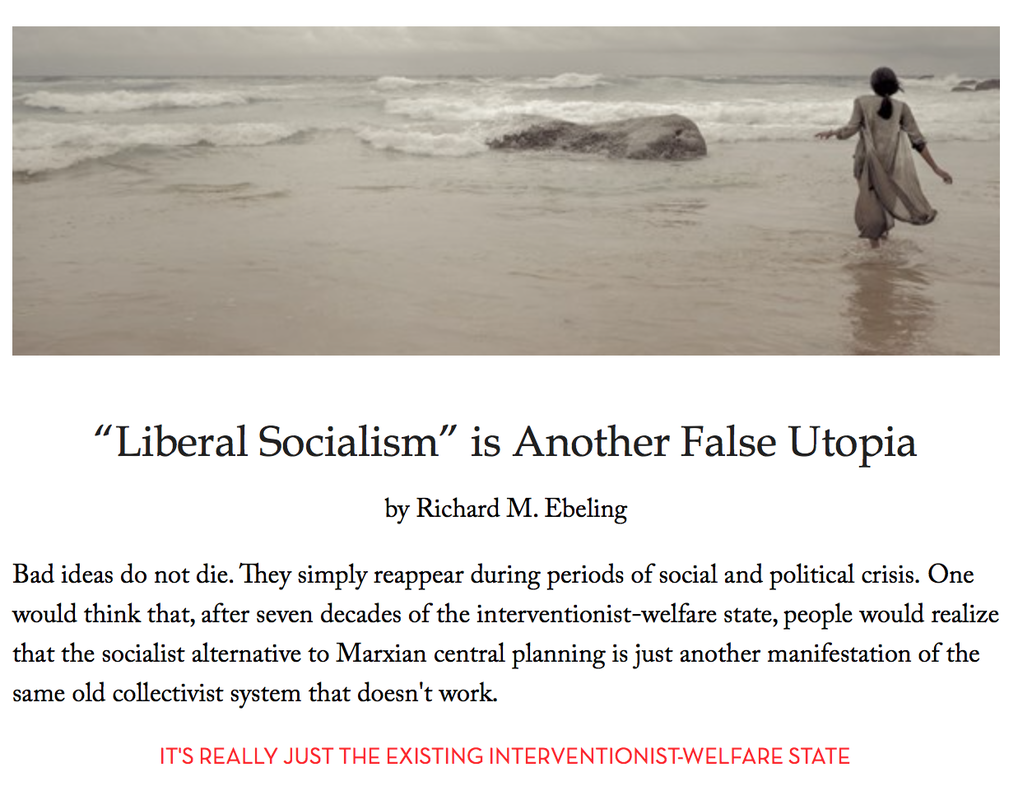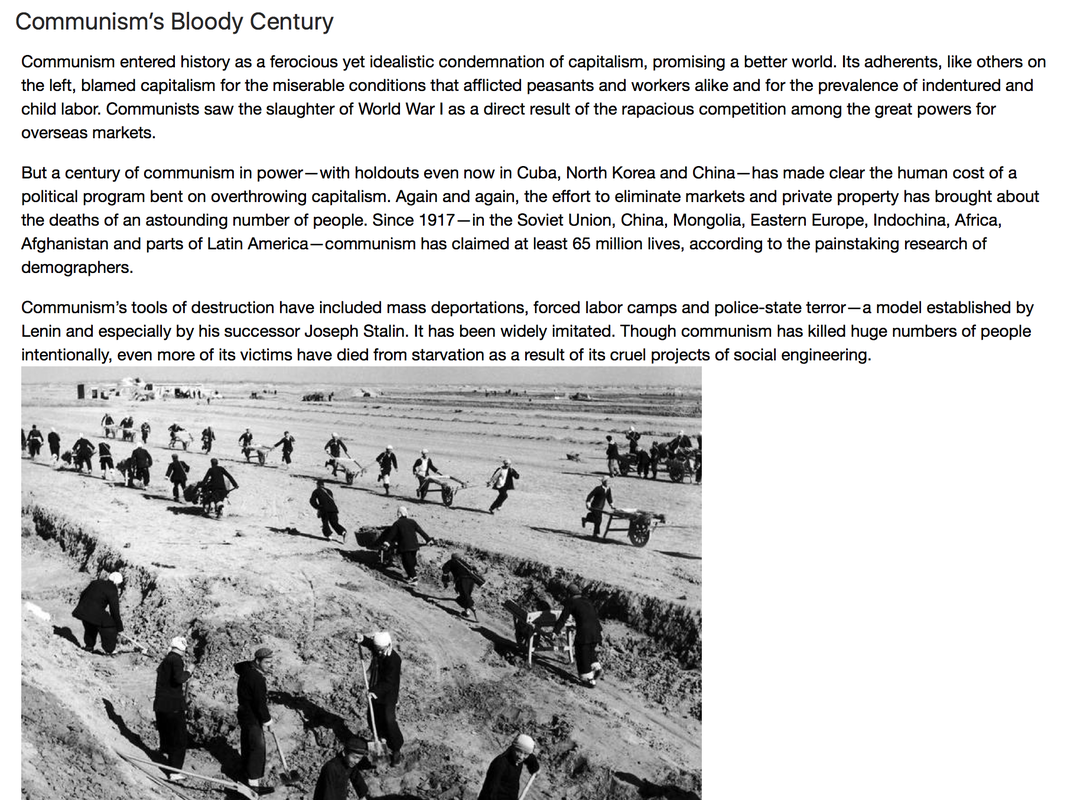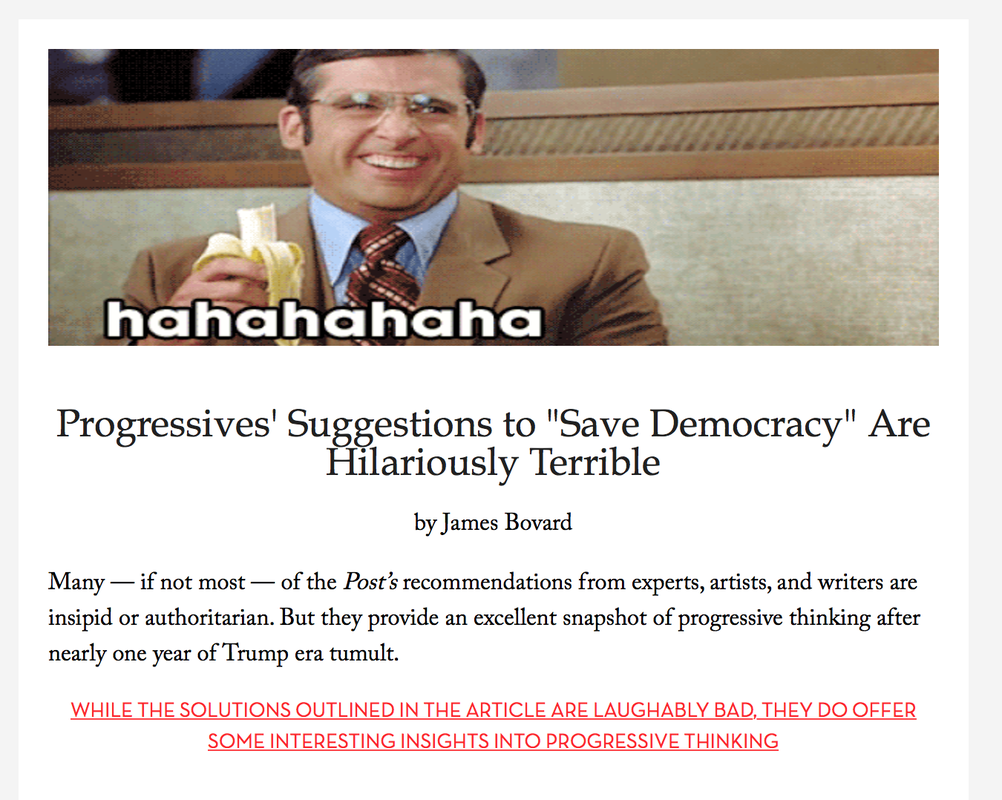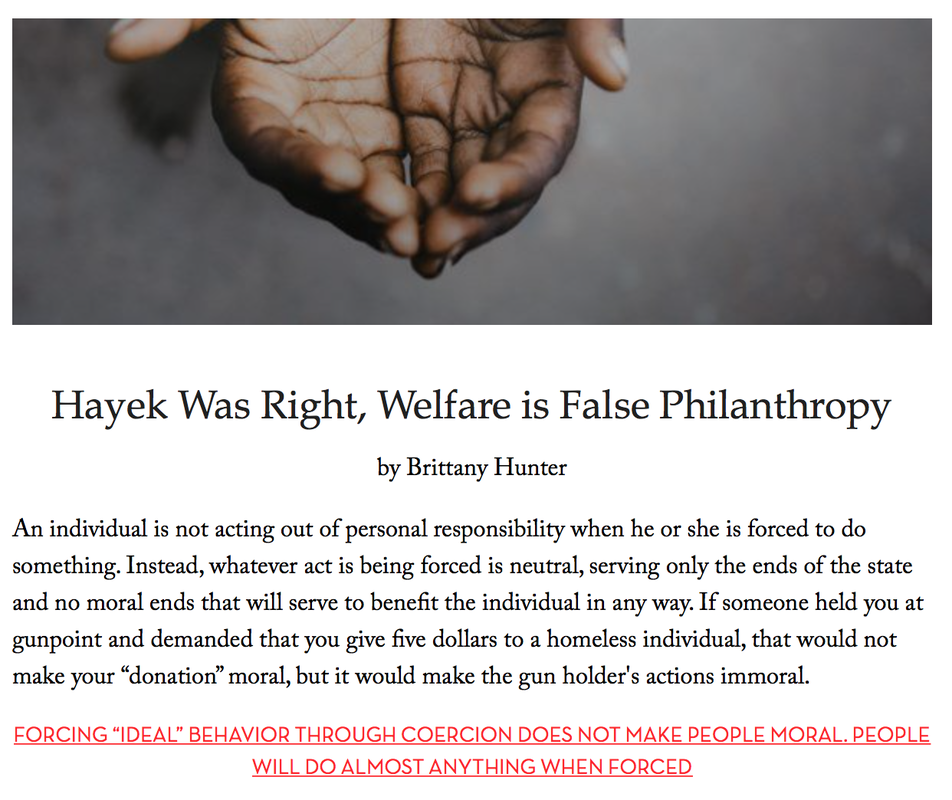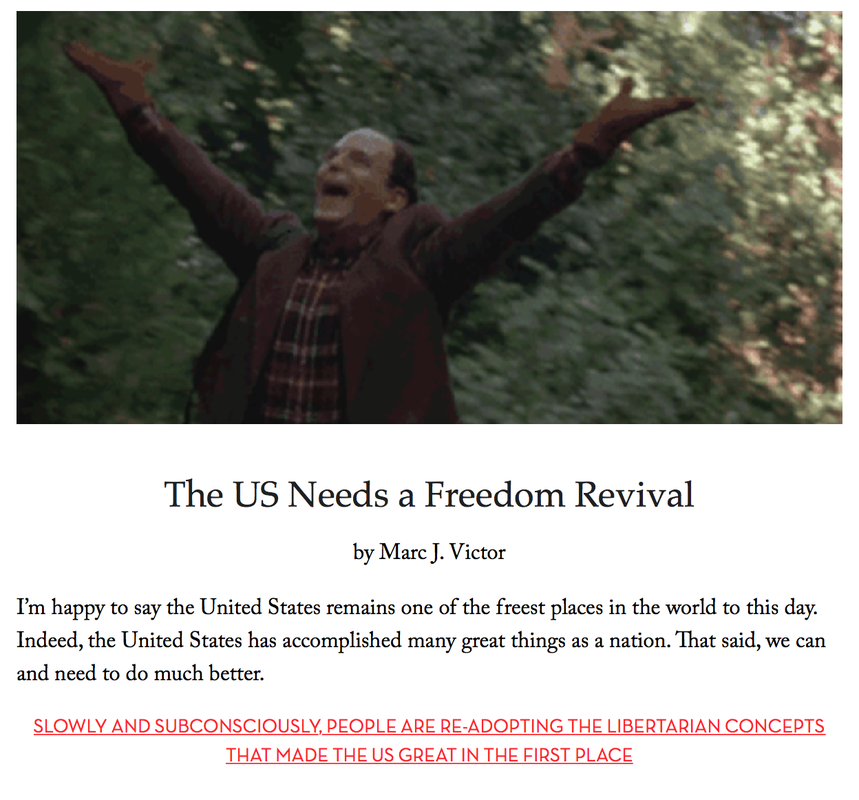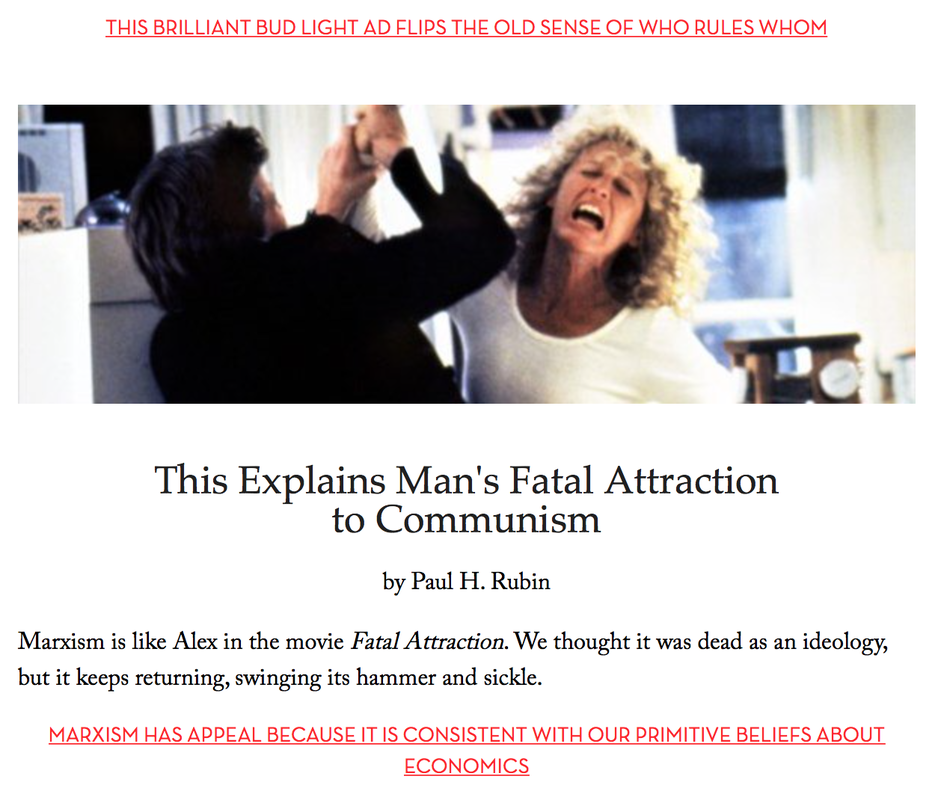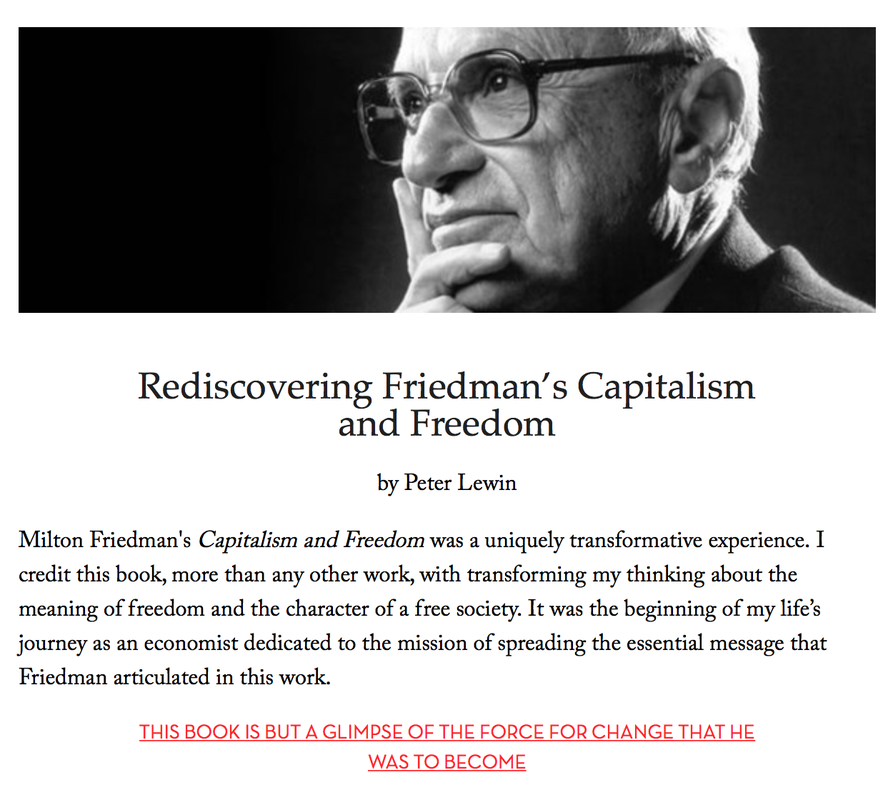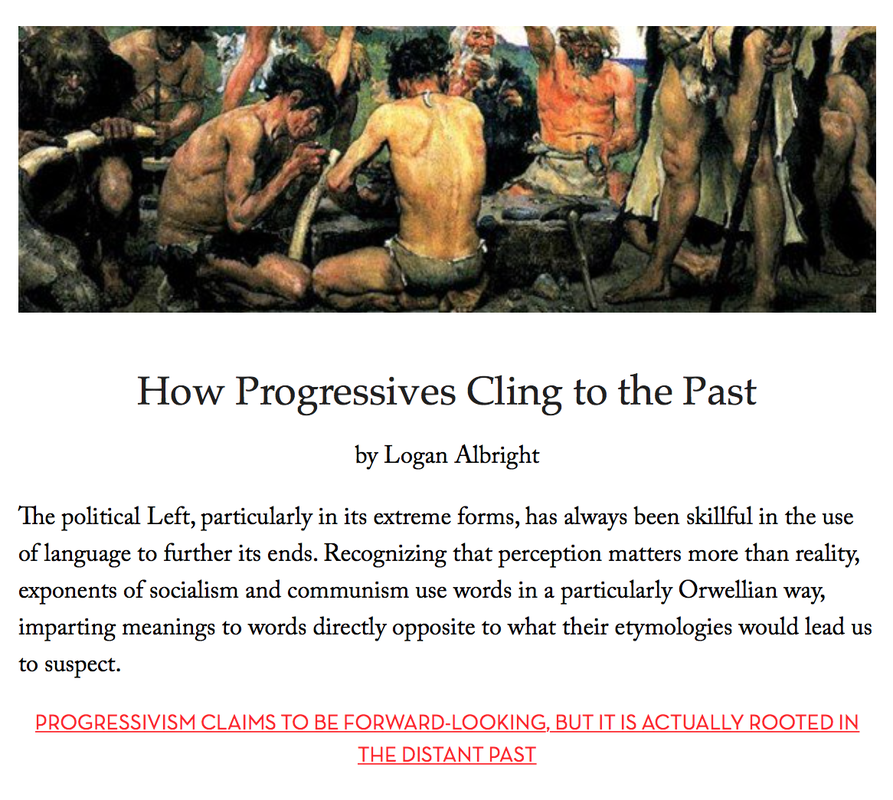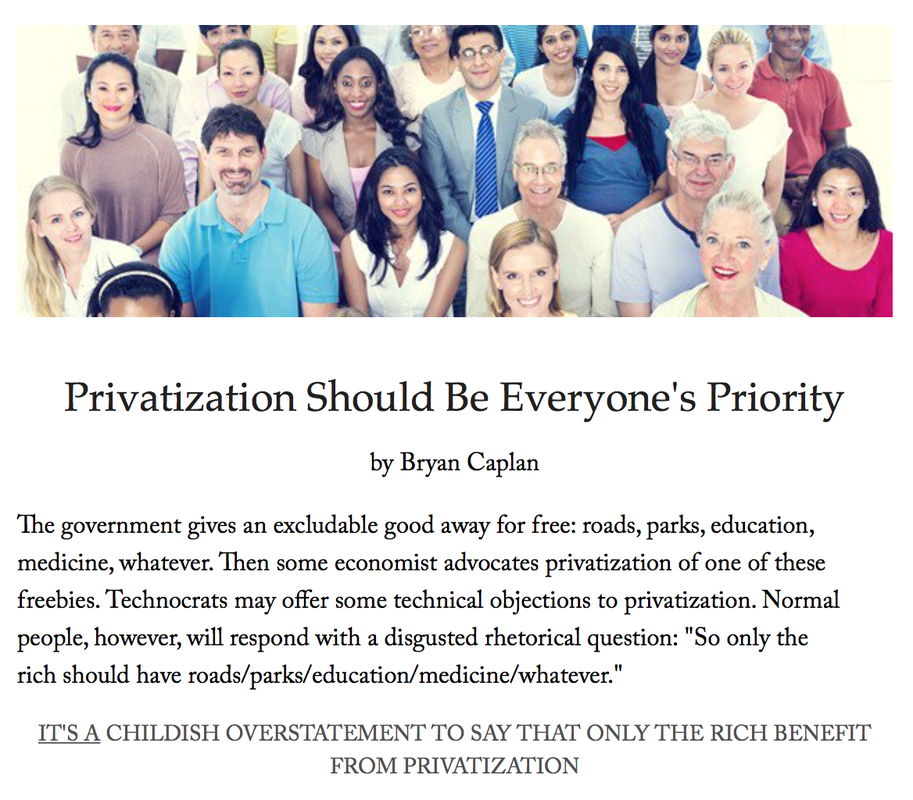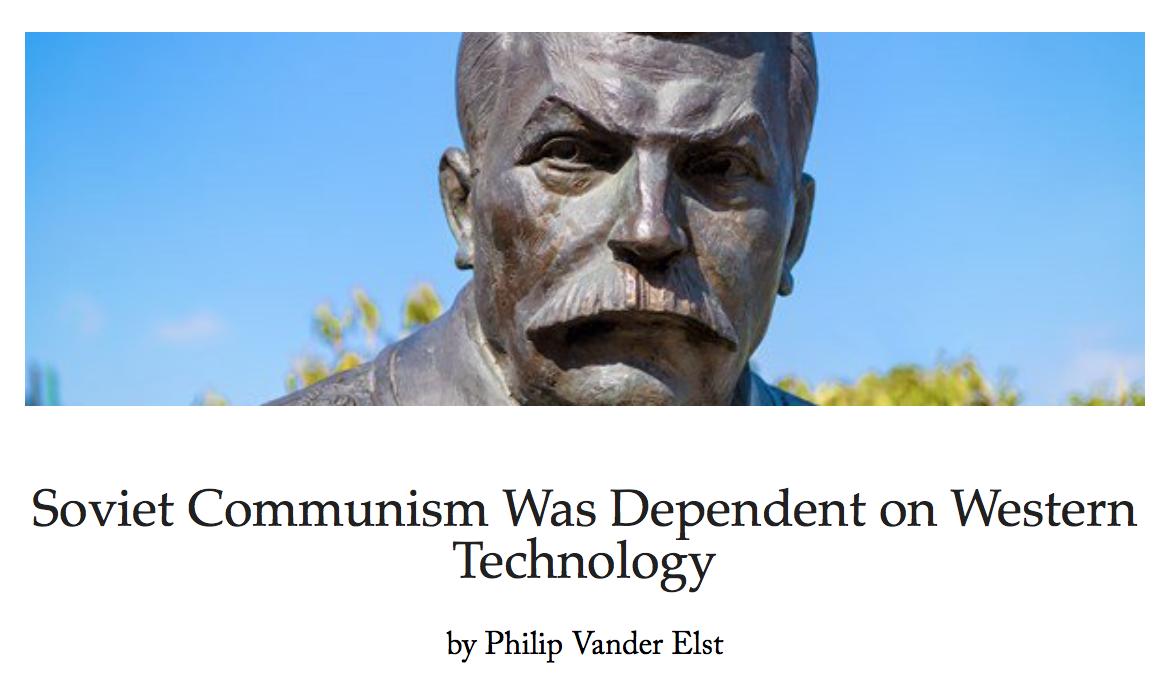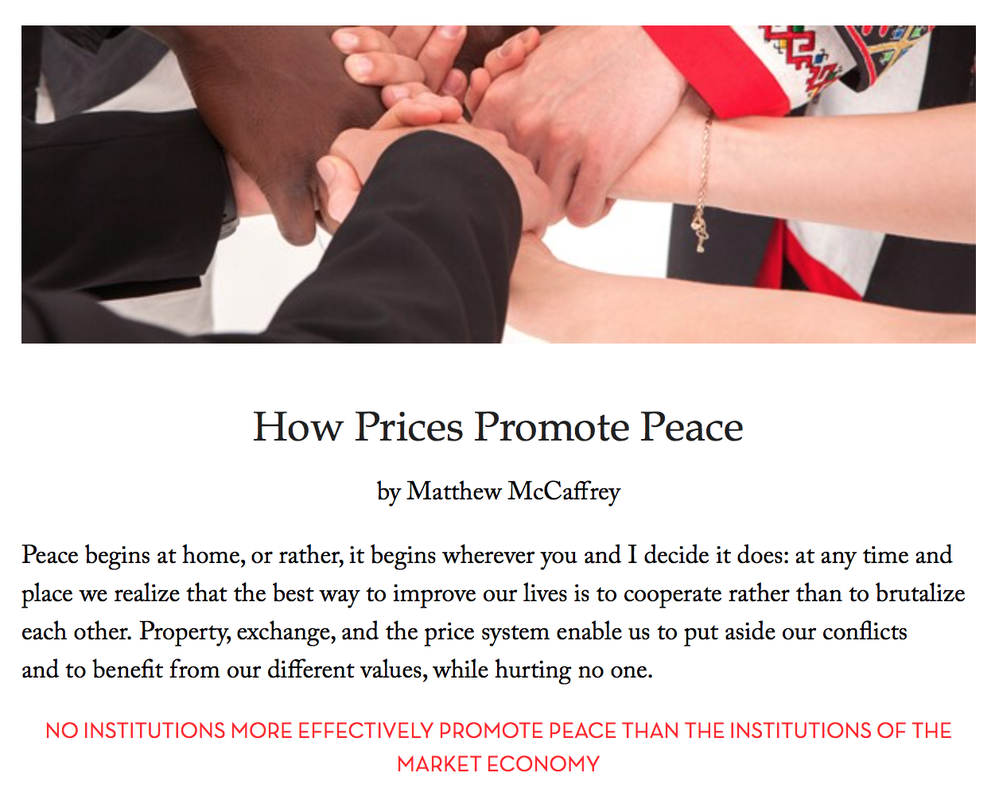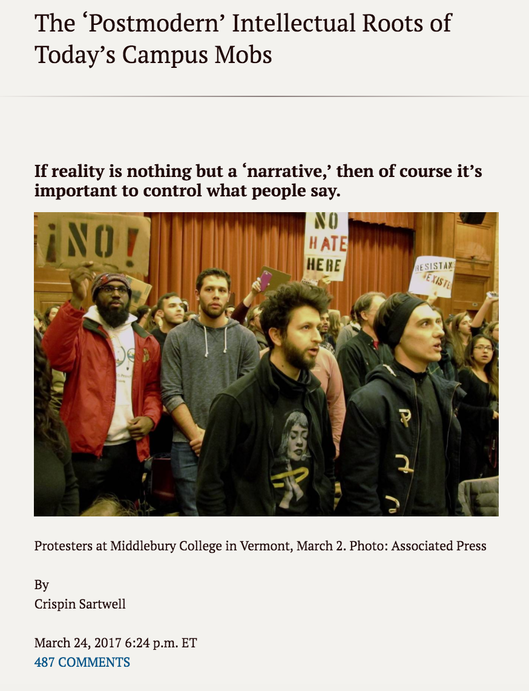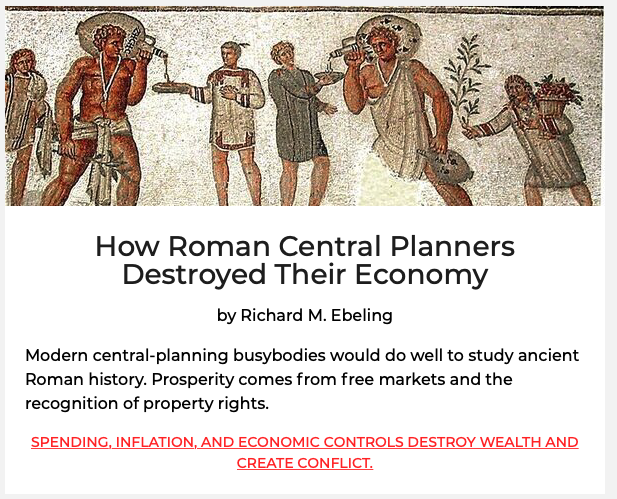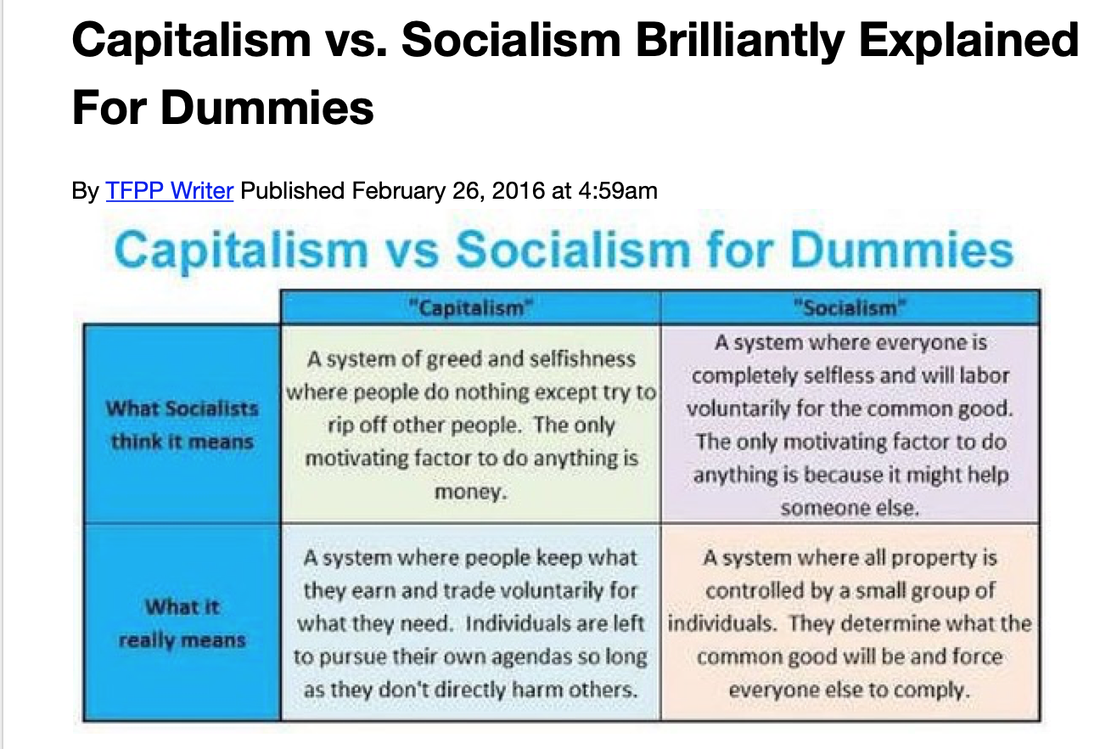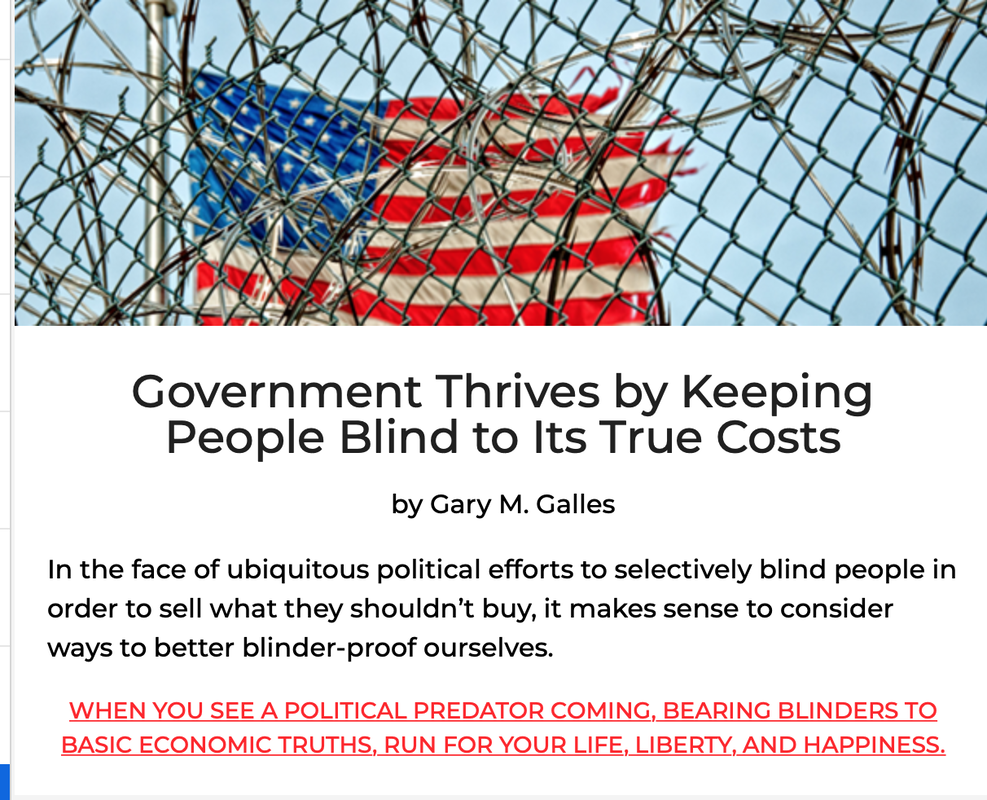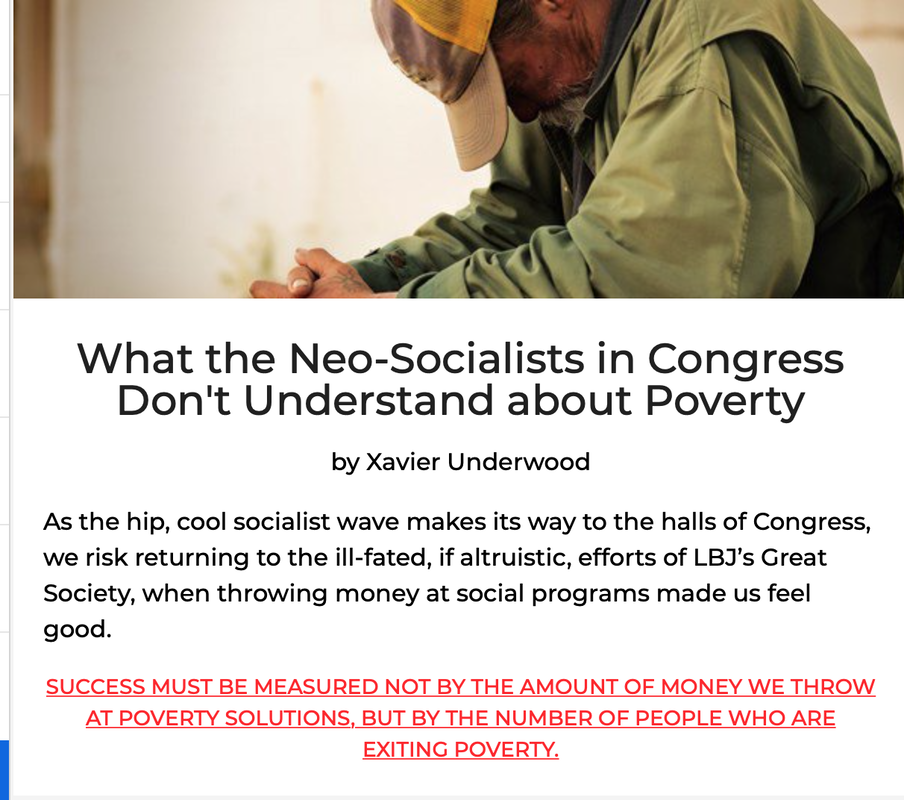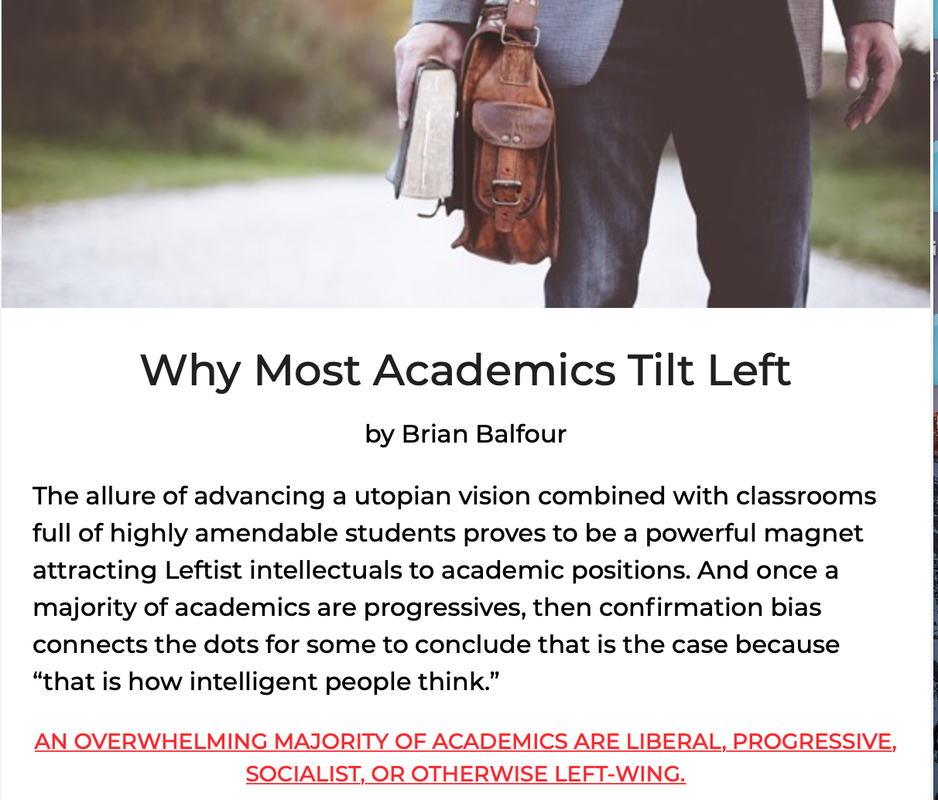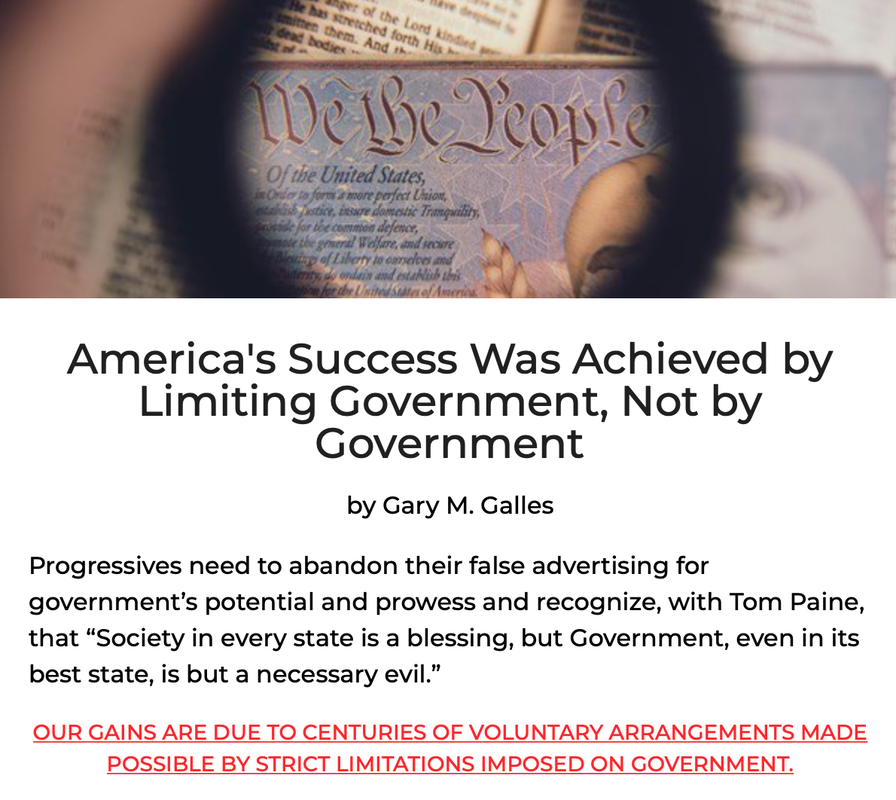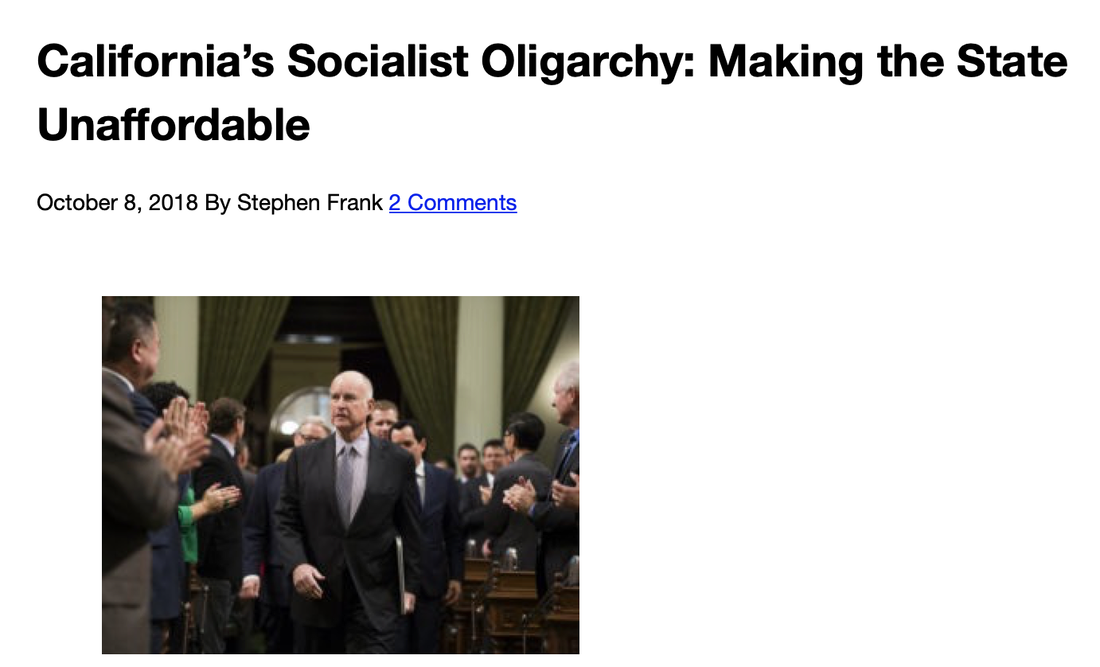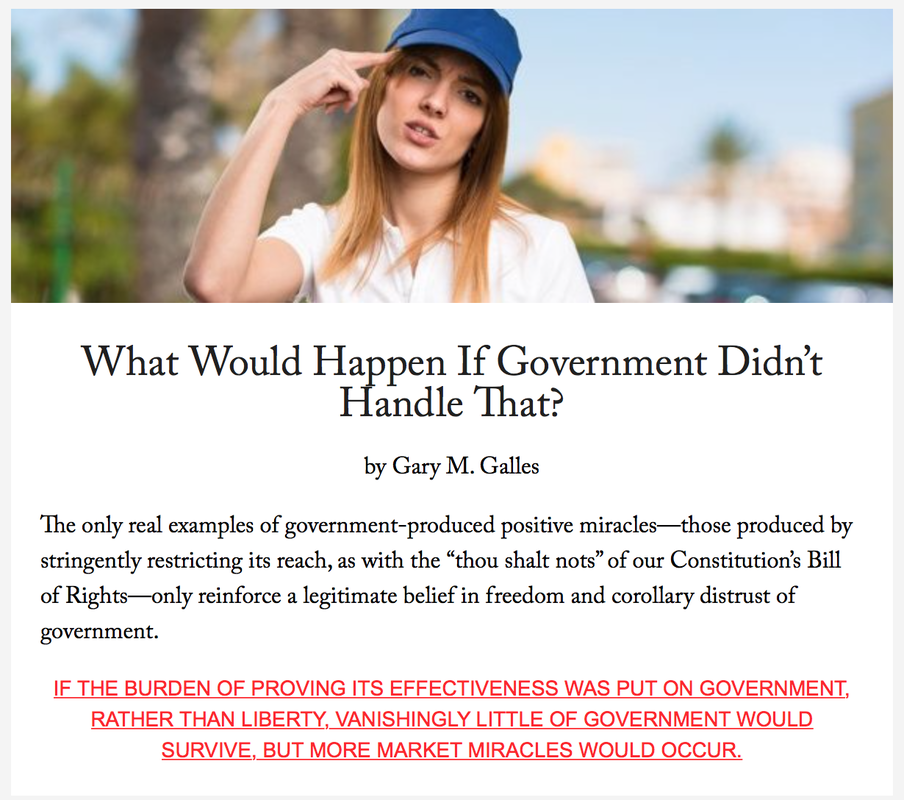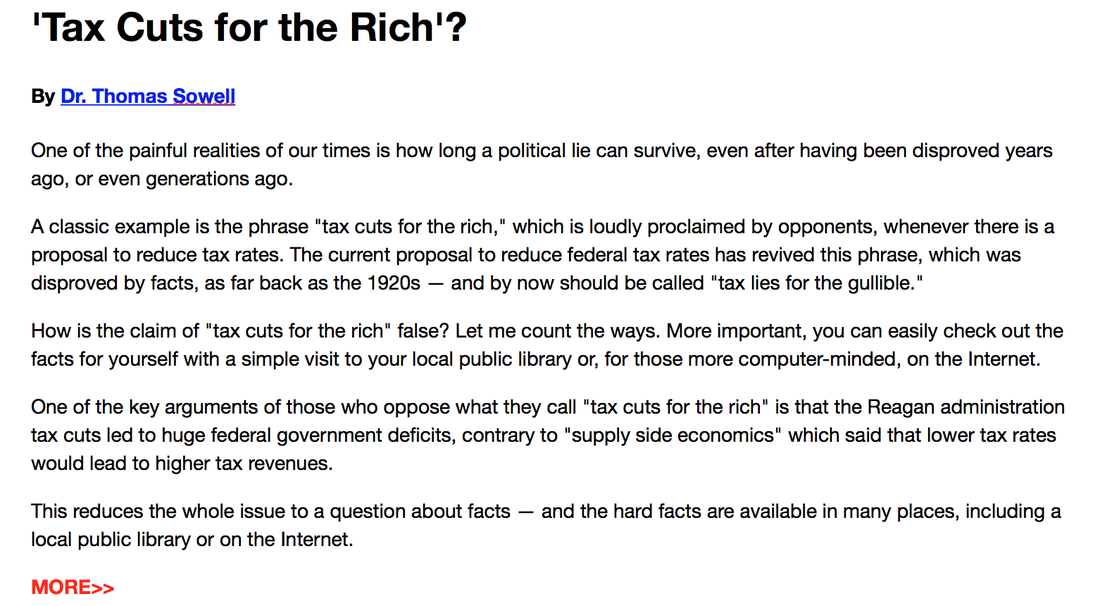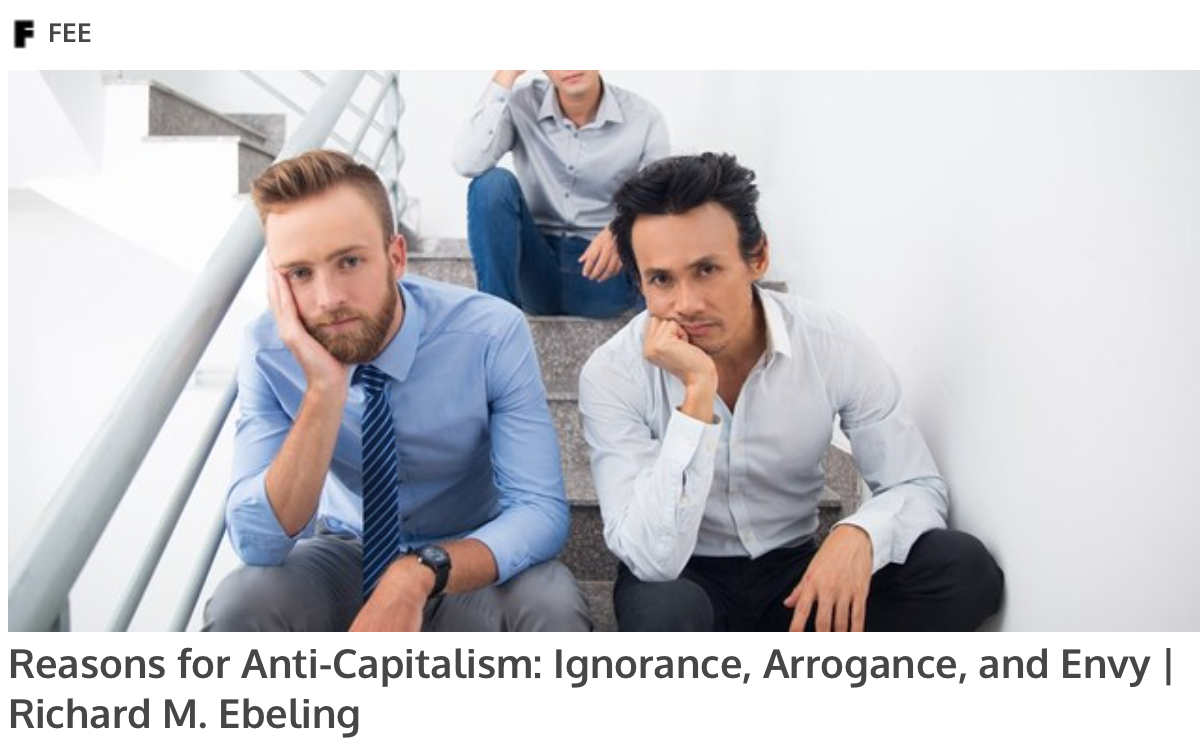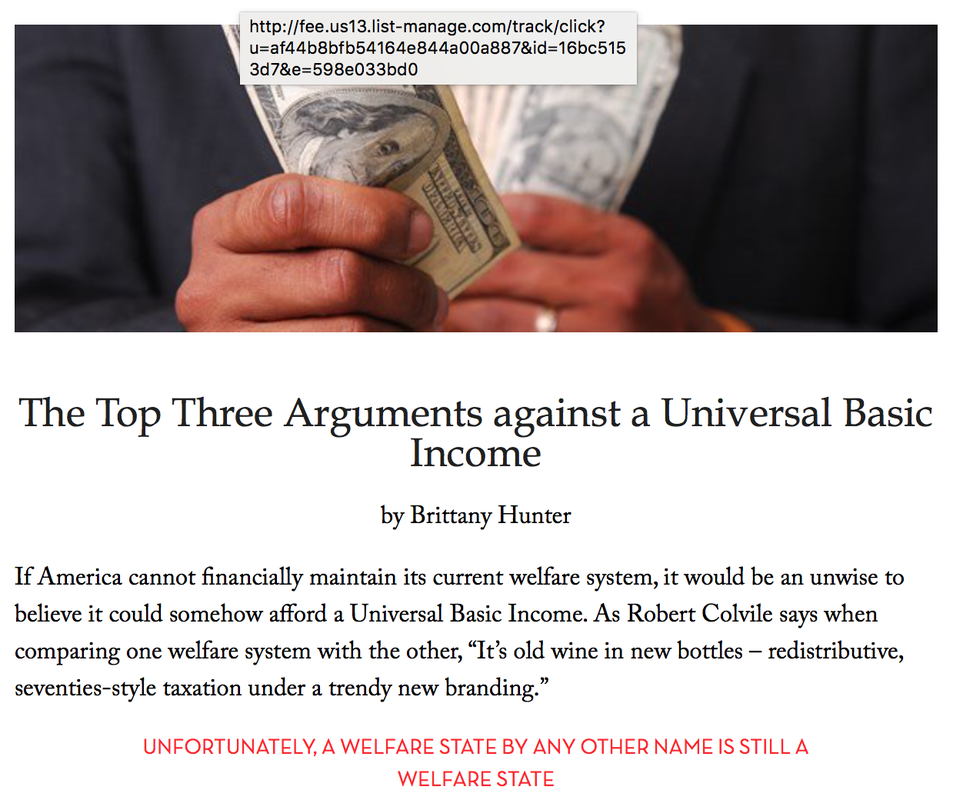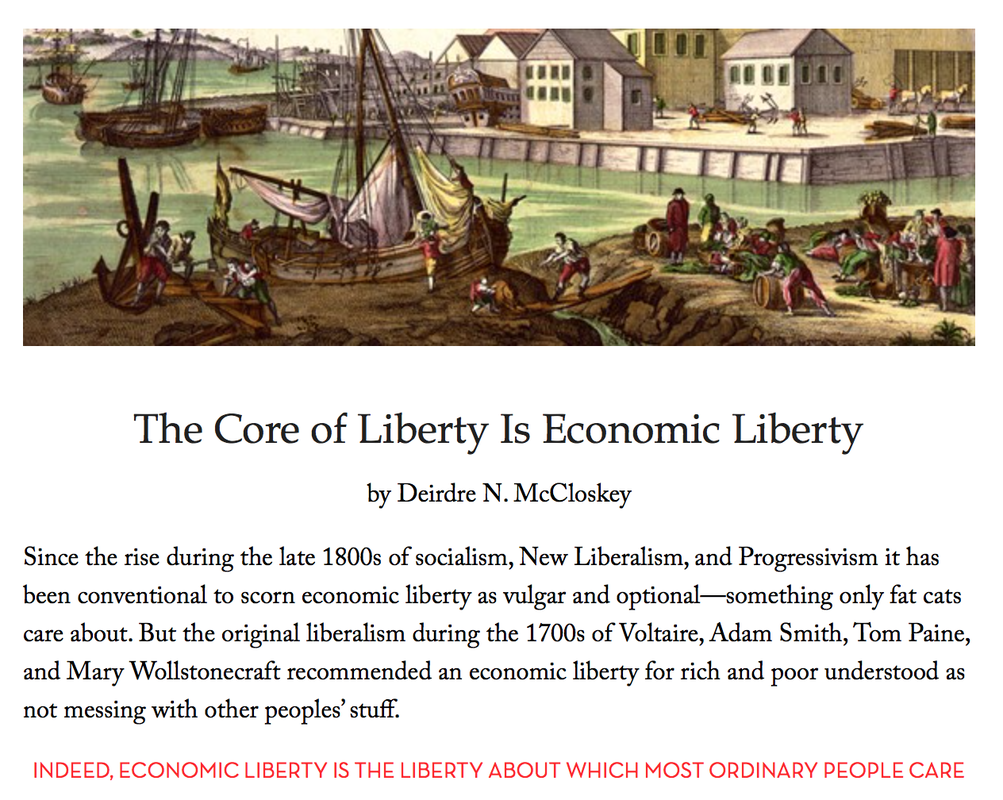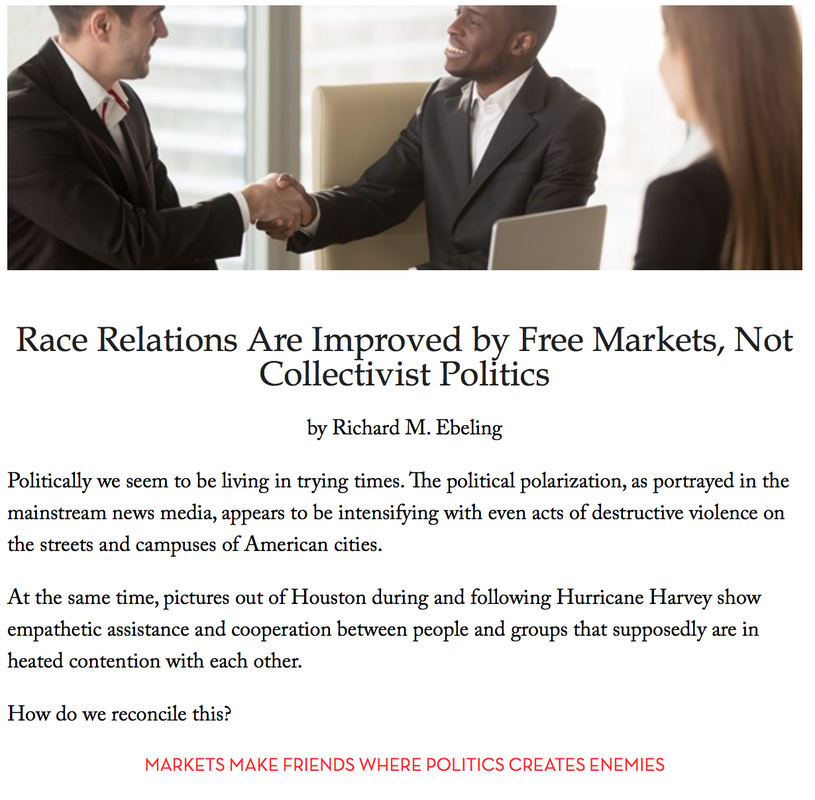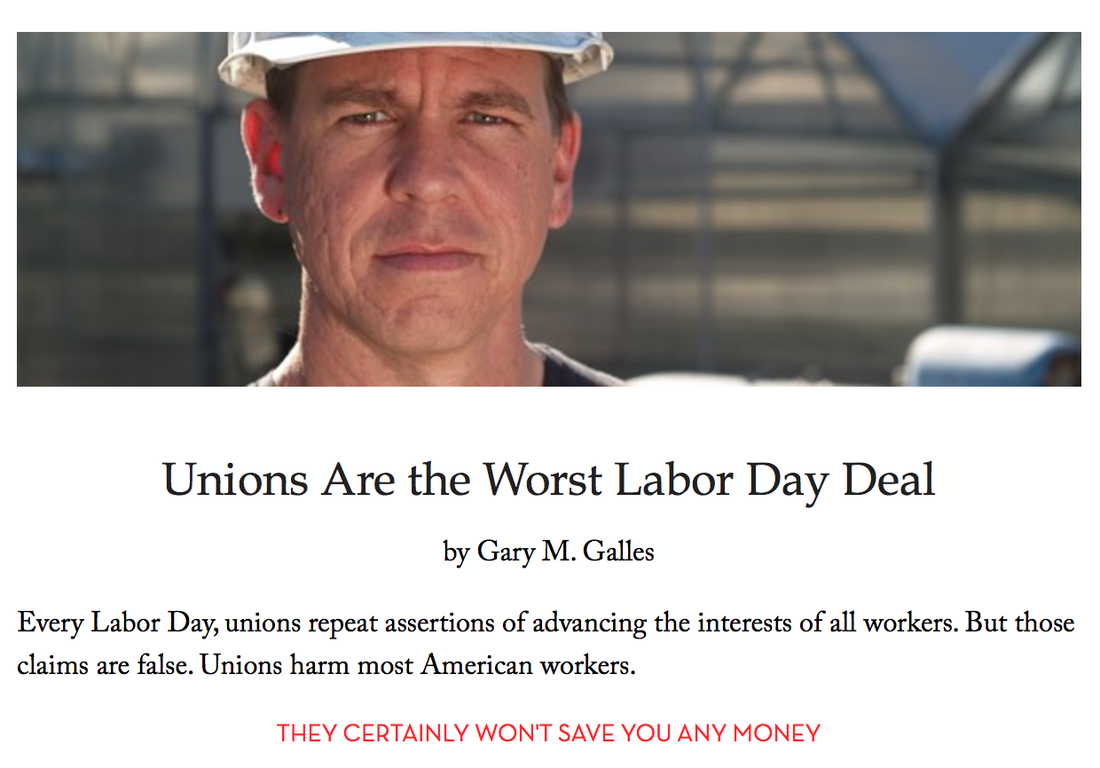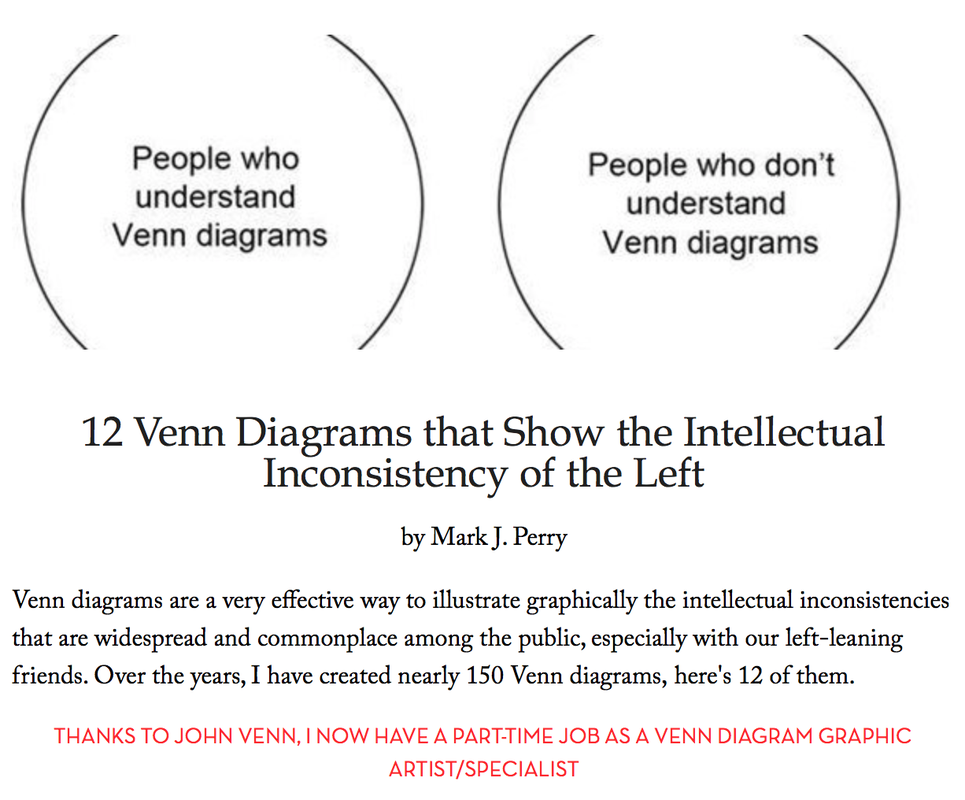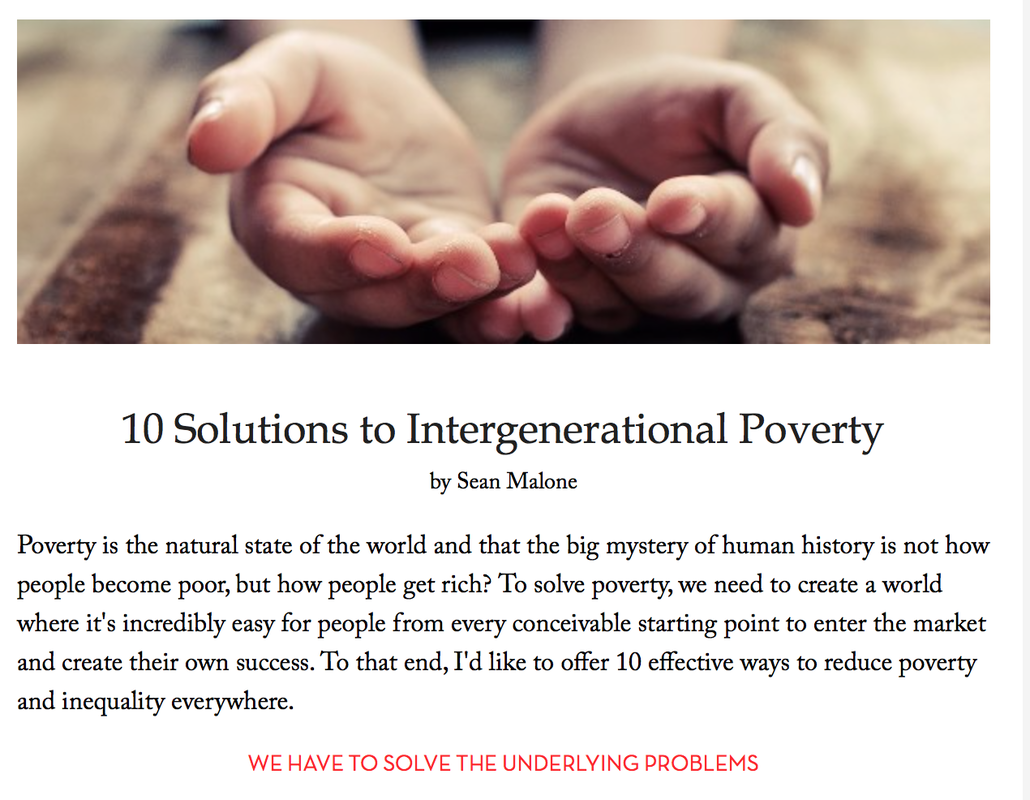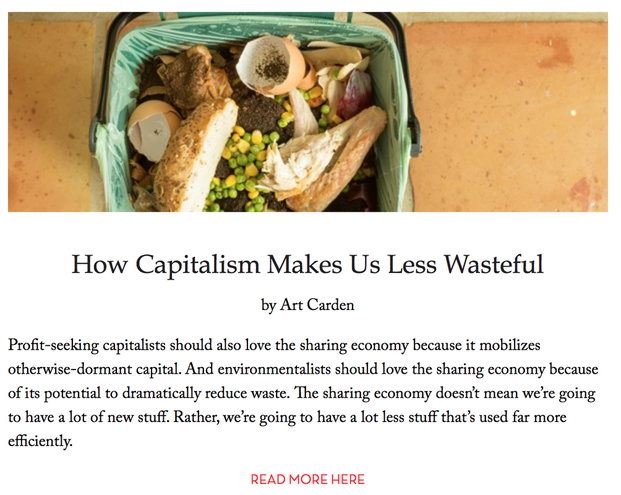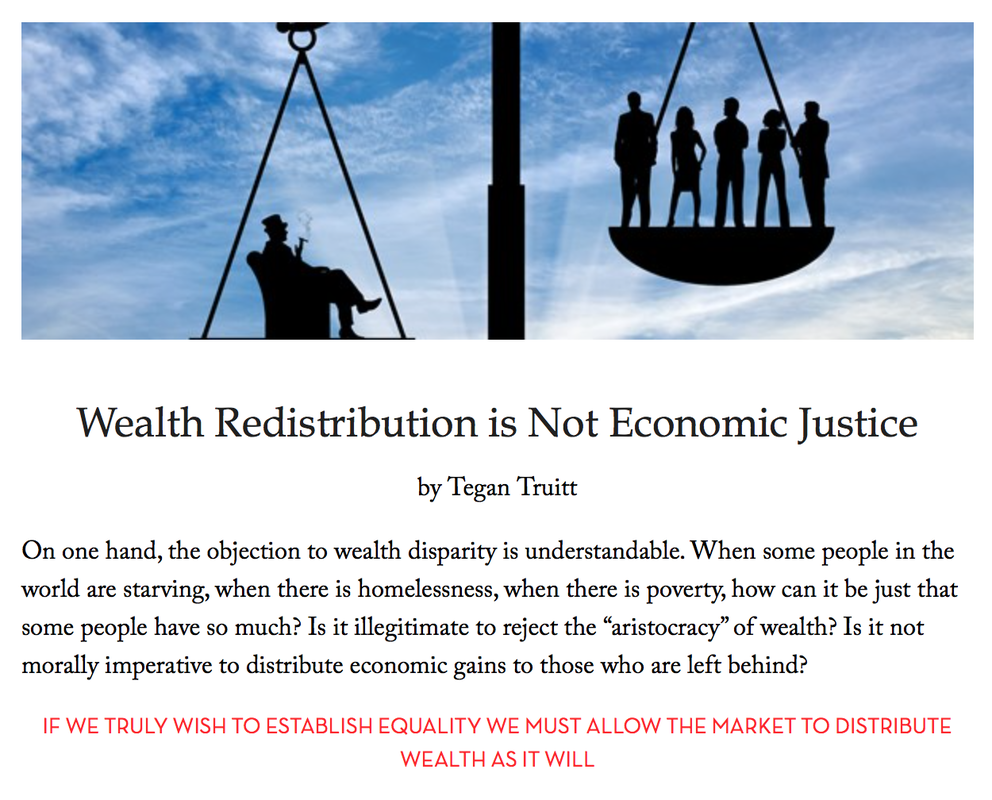Top Articles
Whatever the Left Touches it Ruins
The opinions expressed by columnists are their own and do not represent the views of Townhall.com. The only way to save Western civilization is to convince more people that leftism -- not liberalism -- is a nihilistic force. Quite literally, whatever the left touches it ruins.
Are AR-15 Rifles a Public Safety Threat? Here's What the Data Say | Being Classically Liberal
Between 2007 and 2017, nearly 1,700 people were murdered with a knife or sharp object per year. That's almost four times the number of people murdered by an assailant with any sort of rifle. But what if we look at just AR-15 rifles?
Under Socialism, Morality Is Scarcer than Bread | Marian L. Tupy
Defending capitalism as a morally sound economic system is important. One of the questions from the audience concerned the morality of capitalism. "You have shown that capitalism creates more wealth than socialism," a young man conceded. "But is it moral?" he asked.
Envy Kills |
When was the last time you heard a sermon against envy or observed a media figure casually recognizing its evils? Condemnation of envy as a motivating force for the destruction of life and property has nearly entirely vanished from the culture.
Capitalism Should Play a Bigger Role in Protecting the Environment | Daniel J. Mitchell
That being said, protecting the environment is a worthy and important goal. Especially well-enforced property rights. ...what is needed for better husbandry of ecological resources is more widespread and deeper establishment of property rights together with their enforcement. The cause of environmentalism is often associated with the Left.
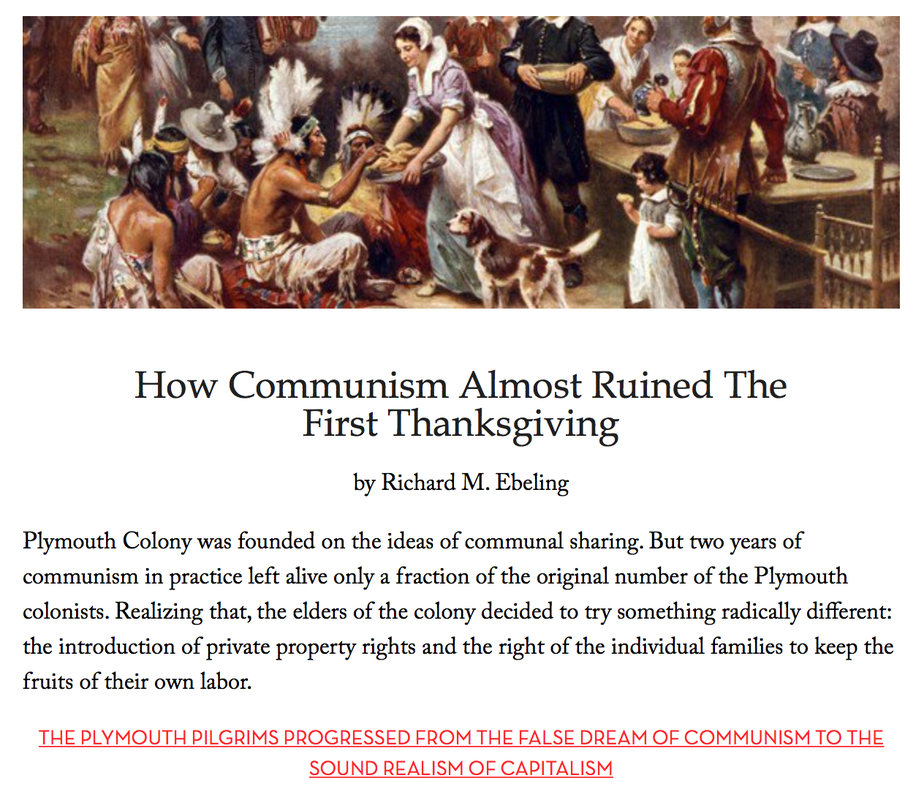
What the Mexican Revolution Can Teach Us about Social Justice 100 Years Later | Rafael Ruiz Velasco
Ironically, in its eagerness to overthrow a regime, the Mexican Revolution ended up creating a much more enduring and dangerous one, which did not center on a single person, but rather on the ideals and lifestyles of the entire population.
Crabs and Communists: How Envy Politics Drags Us All Down | José Azel
In the United States, we are beginning to condemn individuality, businesses, and the profit motive and to promote a culture of being taken care off. We seem to forget that when someone is taking care of us, it means someone is deciding for us.
The Left's Siren Song of Coerced Equality
Since I can't even keep track of schools of thought on the right (libertarians, traditional conservatives, neocons, reform conservatives, compassionate conservatives, Trump-style populists, etc), I'm not going to pretend to know what's happening on the left. But it does appear that something significant - and bad - is happening in the statist community.
The Alluring Falsehood of Socialism | Max Eastman
For it is not the copper-riveted old-time believers in Marxian theory that we in America have to fear. Their fairy tale is not plausible enough to be dangerous. It is the bureaucratic socializers who constitute a real and subtle threat to America's democracy.
Communism's Legacy: Tyranny, Terror, and Torture | Richard M. Ebeling
In August of 1993, I was invited to participate in a conference in Vilnius, Lithuania on "Liberty and Private Business." This was less than two years after the formal disappearance of the Soviet Union as a political entity on the map of the world.
Have You Been Using the Term Liberal Incorrectly? | Kent Lalley
Liberalism, from the Latin liber, meaning free, referred originally to the philosophy of freedom. "Liberal" was once an honorable word used to describe those who put liberty first. Liberalism is a comprehensive philosophy of those who favor liberty above the state. This, in reality, is anti-liberalism. In fact, they are rather moderate socialists.
3 Economic Fallacies That Just Won't Die | Luis Pablo de la Horra
Economics in One Lesson is a magnificent rebuttal of popular economic fallacies deeply embedded in the political discourse of his time. By means of a very accessible language aimed at the general public, Hazlitt discusses, dissects, and debunks 22 economic sophisms like the idea that technological advances destroy employment or the myth that price ceilings are beneficial for consumers.
How Many Lives Are Lost Due to the Precautionary Principle?
No matter how well intentioned, sometimes hyper-precautionary rules can be deadly. By defaulting public policies to super-cautious mode and curtailing important innovations, laws and regulations can actually make the world less safe. A new NBER working paper finds exactly this: the authors examined the "unintended effects from invoking the precautionary principle after the Fukushima Daiichi nuclear accident," which occurred in Japan in March 2011 due to a tsunami.
Why Does the Left Want Universal Health Care? Britain's Is on Its Deathbed
The U.K.'s government-run healthcare system, the National Health Service, turns 70 this month. There's not much to celebrate. The NHS is collapsing. Patients routinely face treatment delays, overcrowded hospitals, and doctor shortages. Even its most ardent defenders admit that the NHS is in crisis. Yet American progressives want to import this disastrous model.
4 Reasons Private Property Is Superior to Communal Property, According to Aristotle | Paul Meany
In " The Communist Manifesto ," Karl Marx aptly summarized the implications of a communist society, stating that "the theory of the Communists may be summed up in the single sentence: Abolition of private property ." As an institution, private property has been a crucial factor in the flourishing of Western society and its political thought.
The Negative Impact of the #MeToo Movement - Imprimis
Heather Mac Donald Manhattan Institute Heather Mac Donald is the Thomas W. Smith Fellow at the Manhattan Institute and a contributing editor of City Journal. She earned a B.A. from Yale University, an M.A. in English from Cambridge University, and a J.D. from Stanford Law School.
Twelve Economic Concepts Everyone Should Know | Richard N. Lorenc
We at FEE have thought about this quite a lot for our articles, courses, seminars, and videos. We have distilled "economic thinking" into 12 key concepts. The following list has guided us internally for a few years, and I figure it's now time to share it with the world.

"Monumental sums for bailouts. Staggering increases in public debt. Concentration of power in the central government. A mad scramble by interest groups with endless claims on the treasury. Mushrooming regulations on enterprise. Demagogic class warfare appeals. Higher taxes on the productive. Decline of virtues once widely embraced as essential for strong character. These things ring familiar in 21st century America just as surely as they dominated the ill-fated Roman welfare state of two millennia ago."
"The growing prosperity (in Ancient Rome) was made possible by a general climate of free enterprise, limited government, and respect for private property. Merchants and businessmen were admired and emulated."
"Why did Rome decline and fall? Rome collapsed because of a fundamental change in ideas on the part of the Roman people— ideas which relate primarily to personal responsibility and the source of personal income. In the early days of greatness, Romans regarded themselves as their chief source of income. By that I mean each individual looked to himself—what he could acquire voluntarily in the marketplace—as the source of his livelihood. Rome’s decline began when the people discovered another source of income: the political process—the State."
"When Romans abandoned self-responsibility and self-reliance, and began to vote themselves benefits, to use government to rob Peter and pay Paul, to put their hands into other people’s pockets, to envy and covet the productive and their wealth, they turned down a fateful, destructive path. "
"Nothing but evil can come from a society bent upon coercion, the confiscation of property, and the degradation of the productive."
"Taxation ultimately destroyed the wealthy first, followed by the middle and lower classes."
"Prices skyrocketed and savings vanished. Businessmen were vilified even as government continued its spendthrift ways. Price controls further ravaged a battered and shrinking private economy."
"It’s frightening to consider how easily a sturdy people, when they let their guard and character down, can be bought and paid for by the welfare state. And once they sell themselves for that mess of pottage from politicians, it’s not easy to turn back."
"Romans first lost their character. Then, as a consequence, they lost their liberties and ultimately their civilization."
- Lawrence W. Reed, Economic Historian (excerpts from his essay "Are We Rome")
5 Reasons Marxism Has Nothing to Offer Millennials | Ibrahim B. Anoba
For millennials looking to shake off a dull weekend with a good economics or philosophy book, Marxism is one topic you might want to avoid. Anyone who has taken the time to read either Karl Marx or Friedrich Engels would, hopefully, realize just how lucky they are to live in a relatively free society.
